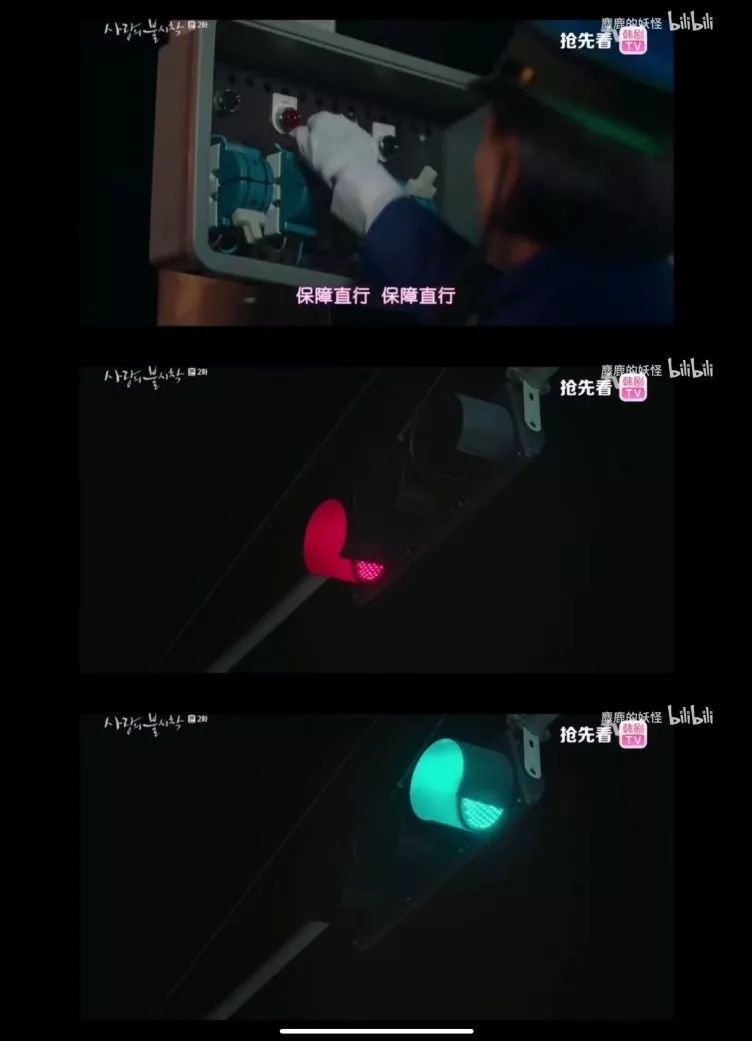It's better to watch Korean idol dramas than reading papers (Crash Landing on Love E01-02)
Author: Li Yanran Written on December 18, 2019

Recently, I have transitioned from the daily life of watching movies to watching dramas. I am chasing the lengthy domestic drama "Heju Huating". Hyun Bin's new drama is here again. Last year, I watched a TV drama about games that he starred in. , I didn't expect that he would cross the border and go to North Korea to be the son of a high-ranking official in the next drama. When I watched the scene excerpt video for a few minutes at station B, I still rolled my eyes psychologically, "Korean dramas really dare to come to any subject in order to fall in love" , As a result, the second episode of the Korean drama TV was made up, and the slap was slapped on his face.
The era background setting of this drama is contemporary South Korea and North Korea, two ideologies in one time and space. When watching the drama, it is easy to have a sense of time travel, just like contemporary Chinese society and China in the 1970s and 1980s. I watched the second episode completely. This episode focuses heavily on the rural society where the hero lives in North Korea. The skillful scheduling of the camera language presents the daily production and life of North Korean civilians, as well as the permeation of the capillaries of power in the daily distortion. The spectacle of the two intertwined. I am envious of the fact that the film and television industry in developed countries has done so much. My interest in the protagonist's romance is second, and seeing the picture of the contemporary life of the North Korean people on the Internet is enough to satisfy my strong curiosity. The "love" element in Korean dramas may have taken a back seat. Discuss various topics from the perspective of the hero and heroine. I am afraid this is what the screenwriter wants.
In this episode, the female protagonist spends one day and two nights at the male protagonist's house, the neighbor relationship and life are presented, and the male protagonist handles official duties. These three perspectives slowly unfold the difference between the grassroots and the privileged class under the totalitarian rule of North Korea. The male protagonist is the heir to the North Korean privileged class. He is a captain of a certain army at the border. He once studied in Switzerland and has been to many countries in the world. In other words, he is a person with two perspectives. The particularity of his identity gives him the opportunity to understand the modern mainstream society, and he is also well versed in the institutional rules of his motherland. He represents the perspective of a developed society like South Korea, living in a society where power has penetrated into the bones and blood of the people with the thinking of "all men are created equal", and he chooses to get along with the people with the way of thinking he has learned from other places , the opposition of the two values makes this role full of contradictions.
There are two clips showing this contradiction. When the male protagonist was taken away from the Pyongyang train station for no reason and the other party tried to throw the iron fist of socialism on his face, Hyun Bin replied, "You have no common sense." . That night, he borrowed a high-ranking military vehicle, and with the license plate number, he drove home from Pyongyang unimpeded and snatched the heroine at gunpoint. I don't know if it's a contradiction for the character. In my opinion, he doesn't want to use the privilege and hopes that the other party will treat him with reason and law. However, he is well versed in the rules of privilege and will use it when he needs it.
The depiction of the relationship between neighbors is definitely the highlight of this drama. The detail of "power outage" easily brings out the contradiction between the current power supply system in North Korea and the people's electricity demand. What's more, every household uses kerosene lamps and candles after the power outage. Or generators to get electricity, completely revealing the family's economic and social status in the community.
The poor state of the rule of law in North Korea can be seen. The military leader where the male protagonist belongs is corrupt to a certain extent. They use civilians to grab benefits, kill people at will, and break into private houses, all of which reflect the randomness of power. Worshiping power from top to bottom, flattering to the superior, and being strict with the inferior, there are too many similarities between the contrasting landscapes of South Korea and North Korea and the current urban and rural development differences in China. In addition, from the perspective of South Korea, North Korea is an excellent refuge for South Korean wealthy criminals.
The randomness of power leads to absolute corruption. The male protagonist lives in a society infiltrated by totalitarianism with modern human rights thinking. Privilege is both his ladder and the shackles around his neck. It is hard for me to imagine an idealist in a totalitarian society by himself. realize your ideals. I look forward to the writers giving fresh perspectives in future episodes.
Like my work? Don't forget to support and clap, let me know that you are with me on the road of creation. Keep this enthusiasm together!

- Author
- More